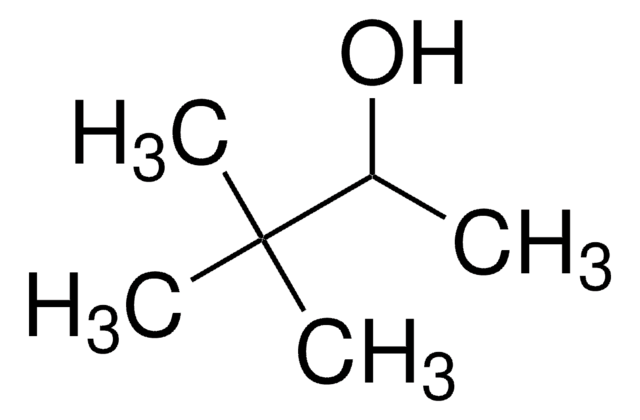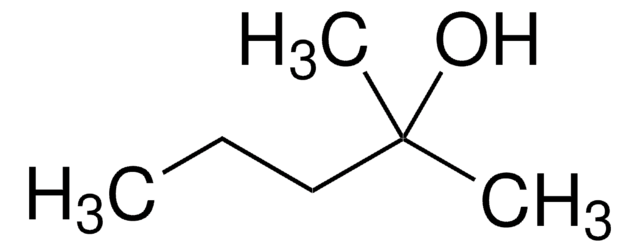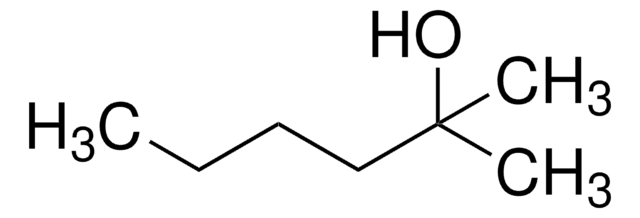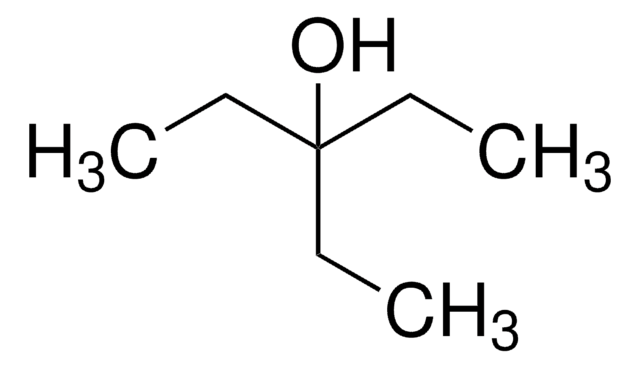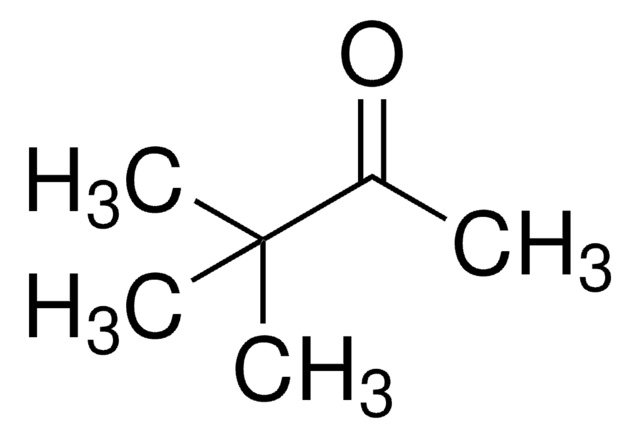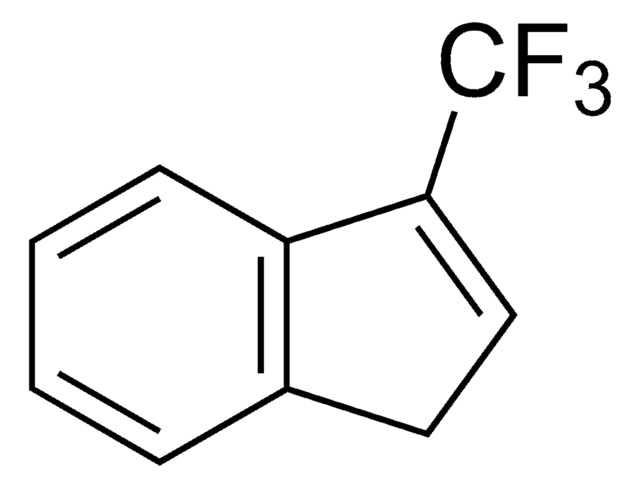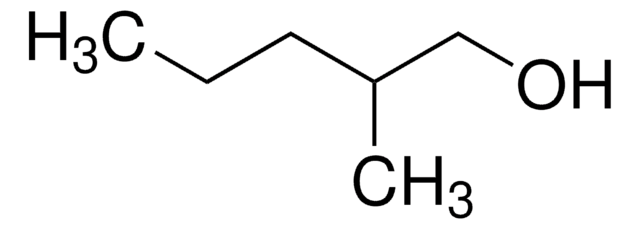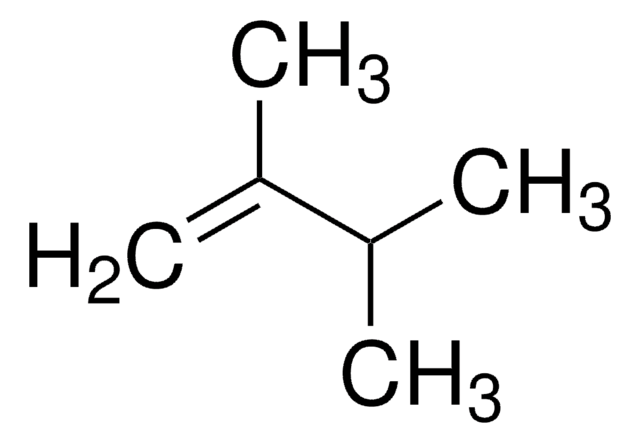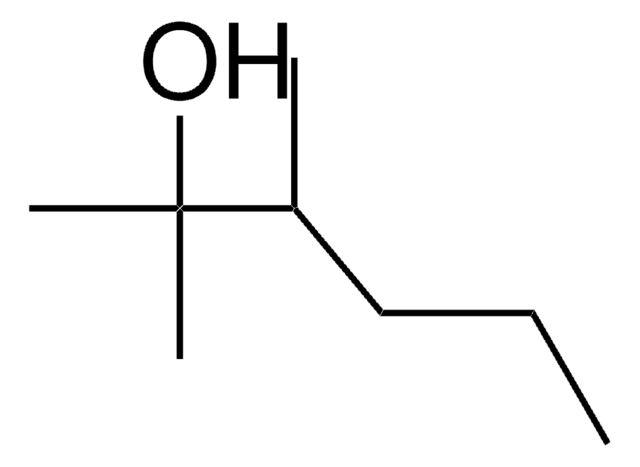129240
2,3-Dimethyl-2-butanol
98%
Synonyme(s) :
Thexyl alcohol
About This Item
Produits recommandés
Niveau de qualité
Essai
98%
Forme
liquid
Indice de réfraction
n20/D 1.417 (lit.)
pb
120-121 °C (lit.)
Pf
−14 °C (lit.)
Densité
0.823 g/mL at 25 °C (lit.)
Groupe fonctionnel
hydroxyl
Chaîne SMILES
CC(C)C(C)(C)O
InChI
1S/C6H14O/c1-5(2)6(3,4)7/h5,7H,1-4H3
Clé InChI
IKECULIHBUCAKR-UHFFFAOYSA-N
Vous recherchez des produits similaires ? Visite Guide de comparaison des produits
Catégories apparentées
Description générale
Application
Mention d'avertissement
Warning
Mentions de danger
Conseils de prudence
Classification des risques
Flam. Liq. 3
Code de la classe de stockage
3 - Flammable liquids
Classe de danger pour l'eau (WGK)
WGK 3
Point d'éclair (°F)
84.2 °F - closed cup
Point d'éclair (°C)
29 °C - closed cup
Équipement de protection individuelle
Eyeshields, Faceshields, Gloves, type ABEK (EN14387) respirator filter
Faites votre choix parmi les versions les plus récentes :
Déjà en possession de ce produit ?
Retrouvez la documentation relative aux produits que vous avez récemment achetés dans la Bibliothèque de documents.
Les clients ont également consulté
Notre équipe de scientifiques dispose d'une expérience dans tous les secteurs de la recherche, notamment en sciences de la vie, science des matériaux, synthèse chimique, chromatographie, analyse et dans de nombreux autres domaines..
Contacter notre Service technique